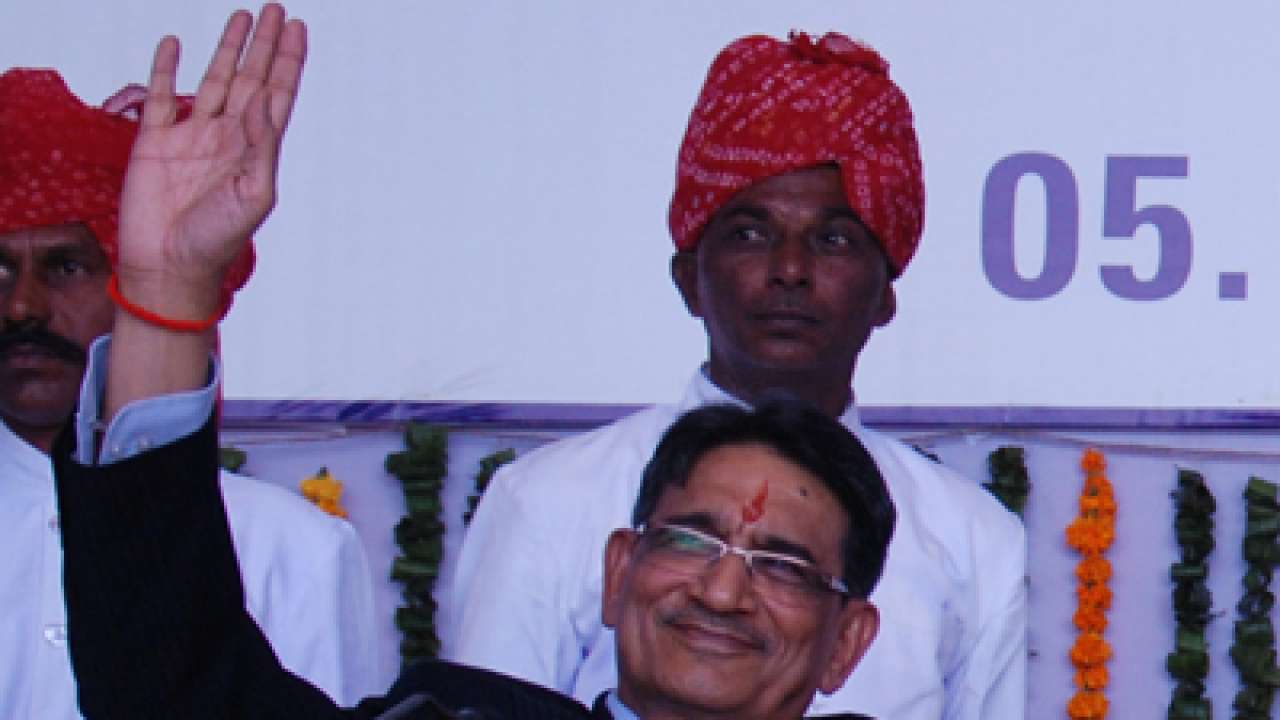
Chief justice of India RM Lodha, who has been defending the existing collegium system for appointment of judges in high courts and the supreme court, once again underlined his cause saying that independence of the judiciary is "non-negotiable" and it has the inherent strength to ensure to fail any attempt to take away the same.
Why is free judiciary non-negotiable?
Without talking about the government's move on the National Judicial Commission for appointment of the judges, Justice Lodha said "what is dear to me is independence of judiciary, which is not negotiable."
"In my experience for past more than two decades as a judge in various high courts and the apex court, I can say with confidence that the judiciary has inherent strength. No effort will succeed in taking away the independence of the judiciary," Justice Lodha, whose retirement as CJI is due on September 27, said.
What was the event?
His remarks came at the backdrop of NDA government's approval of the National Judicial Appointments Commission (NJAC) to abolish the collegium system.
Judicial independence is essential for maintaining public confidence that there is an institution that would come to their "aid and rescue in case of any wrong committed by the executive or anyone", he said while addressing a seminar on 'Rule of Law Convention – 2014' organised by the Bar Association of India.
What is an alternative?
While speaking about his experience of similar occasions in UK and other countries during the last summer, he said as per the UK law, the chairman of the judicial appointments commission should be a lay man. Judges to the Supreme Court and a substantial part of the Court of Appeals there are appointed by this Commission led by a common man.
What would strengthen the judiciary?
Justice Lodha emphasised also on a corruption-free judiciary that would help the growth of a strong rule of law in a country like India.
"I am more than confident that the independence of the judiciary would be maintained by everyone and anyone for whom judiciary is dear at any cost and once it is maintained I am sure there would be a strong rule of law as it is the independence of judiciary that leads to confidence in people's minds…," he said at the function that was attended by judges from the top court, and leading lawyers including Soli J Sorabjee, Anil Diwan and the government's senior most law officer Attorney General of India Mukul Rohtagi.
What should legal eagles keep away from?
He called upon the legal fraternity to keep away people who "play tricks to taint the judiciary", saying any form of corruption in the judiciary would "shield impurity which is the worst form of aliment in a thriving democracy."
Why is this important?
He said that in the era of economic growth, corruption is also growing and it is "very-very" essential that judiciary remain corruption free.
"If there is any amount of corruption in the judiciary one thing that will happen is that it would shield impurity. That is the worst form of ailment in a thriving democracy and to each one of you who are sitting here I request don't do anything that directly or indirectly brings corruption to the judiciary."
How should courts evolve?
Speaking on the legal profession Justice Lodha said "traditional and adversarial system of lawyering cannot resolve all types of cases and advocated adopting "multi-disciplinary practice" to deal with matters of medical negligence, patent, price fixation of gas and drugs.
"Time has come for traditional system of lawyering to leave and diverse methods have been suggested in developed countries. There has been a multi-disciplinary practice involving cases of medical negligence, patent, fixation of drugs pricing, fixation of gas pricing," he said.
What should we take from the US?
Referring to legal practice in US, he also said "It's high time for Bar to consider and recognise the multi-disciplinary practices. "Traditional form of litigation cannot resolve disputes through traditional adversarial litigation."
RWhat is the Centre's take?
eacting to Justice Lodha's remarks, Union Law Minister Ravi Shankar Prasad clarified saying almost all ministers including Prime Minister Narandra Modi have fought for individual freedom, media freedom and also independence of judiciary during the Emergency and all are conscious of it.
"Independence and integrity of Indian judiciary is sacred and sacrosanct for us," Prasad said.